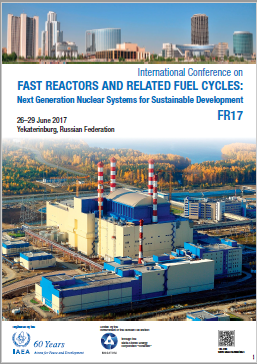Speaker
Dr
Edwin Lyman
(Union of Concerned Scientists)
Description
Some advocates of electrometallurgical reprocessing (or “pyroprocessing”) of spent nuclear fuel argue that the technology has many advantages relative to aqueous reprocessing methods, including cost savings, safety benefits, and increased proliferation resistance. However, to date there has been very little actual operating experience with production-scale electrometallurgical processes, making it difficult to validate these claims. Since 1996, U.S. researchers have been implementing a program to pyroprocess 26 metric tons of sodium-bonded, metallic spent fuel (both driver and blanket) from the shutdown EBR-II and FFTF fast reactors at the Fuel Conditioning Facility at present-day Idaho National Laboratory. In 2000, the U.S. Department of Energy (DOE) asserted that the campaign would be completed within a decade. However, as of 2015, only about 15% of the inventory had been processed, and it appears likely that several more decades will be needed to finish the job. DOE has released very little information to the public on the program and the reasons why it is experiencing such severe delays. However, documents recently obtained by the Union of Concerned Scientists (UCS) under the U.S. Freedom of Information Act shed light on the operational issues of pyroprocessing technology that have contributed to the problems experienced during the campaign. It is apparent from this information that the technology is neither as efficient nor as clean as some claim. The Republic of Korea and other nations that have expressed a deep interest in the development of pyroprocessing technology would be well-advised to take note of the formidable challenges associated with its practical implementation.
Country/Int. Organization
USA/Union of Concerned Scientists
Author
Dr
Edwin Lyman
(Union of Concerned Scientists)

